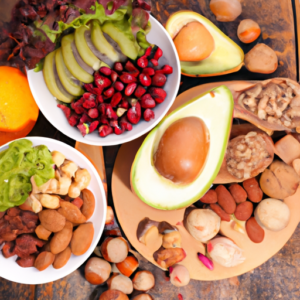
Embarking on a four-week vegan diet challenge, I was excited to explore the benefits of this lifestyle. However, throughout my journey, I encountered various obstacles and learned valuable lessons about nutrition, health, and personal preferences. In this blog post, I will share my experiences, challenges, and insights gained from following a vegan diet.
The Health Benefits of a Vegan Diet:
While there are multiple reasons why people choose a vegan diet, such as moral, ethical, and environmental concerns, I will focus solely on the nutritional and health aspects. A vegan diet can be a healthy choice for individuals of all ages and life stages. However, it is important to note that simply following a vegan diet does not guarantee good health. It is possible to consume vegan junk food and still be considered vegan, but this may not be the healthiest option. Additionally, there are other healthy diets, such as the Mediterranean diet, that can be equally or even more beneficial for overall health.

Considerations and Recommendations:
As a healthcare professional, I generally do not recommend a vegan diet as the first option due to its restrictive nature and high failure rates. When recommending a diet, I aim to create a healthy and achievable plan that fits into my patients’ lives. However, if a patient expresses a desire to follow a vegan diet, I fully support them but emphasize the importance of adequate meal planning, supplementation if necessary, regular blood tests, and seeking guidance from a healthcare professional or nutritionist.
Research on the Health Benefits of a Vegan Diet:
Research on the health benefits of a vegan diet is extensive and of high quality. Switching from a standard American diet to a vegan diet can lead to improvements in chronic diseases such as diabetes, heart disease, strokes, and even an extension of life expectancy. Interestingly, incorporating some animal products into a predominantly plant-based diet does not negate these positive outcomes. Therefore, I recommend a plant-focused diet that includes fruits, vegetables, legumes, nuts, seeds, healthy fats, and a moderate amount of poultry and fish, with minimal red meat consumption.
Personal Challenges and Lessons Learned:
Throughout my vegan diet challenge, I faced several unexpected challenges and learned valuable lessons about myself and the diet. One major obstacle was undereating calories, which resulted from inadequate meal planning. This led to weight loss and a lack of appetite. To compensate for the calorie deficit, I relied on snacks provided by Thrive, which helped me maintain my energy levels.
Another significant challenge was experiencing excessive gas and bloating throughout the entire four weeks. Despite isolating ingredients to identify the cause, I was unable to find a solution. This issue made me question the long-term feasibility of a vegan diet for myself.
Peer pressure was another unexpected challenge. Choosing vegan-friendly restaurants and accommodating my eating preferences annoyed my friends during social outings. However, I made an effort to find vegan options in non-vegan establishments.
Conclusion:
Embarking on a vegan diet challenge allowed me to learn valuable lessons about nutrition, health, and personal preferences. While a vegan diet can be a healthy choice, it is essential to plan meals adequately and ensure proper supplementation. It is also important to consider individual preferences and the feasibility of maintaining the diet long-term. Consulting with a healthcare professional or nutritionist is highly recommended before starting a vegan diet. Ultimately, there is no one-size-fits-all approach to nutrition, and it is crucial to make informed decisions based on the available knowledge and personal circumstances.
If interested, here is a Custom Keto Diet e-Book and Software for daily, Monthly and Yearly Meals planner. Enjoy